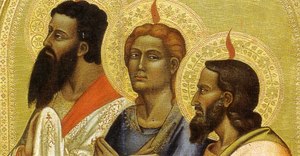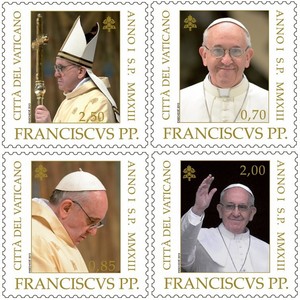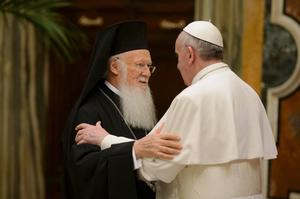Philadelphia archbishop and Capuchin friar Charles J. Chaput writes well about the sobering reality of evangelization in his weekly column for this week. (Get in the habit of reading the Archbishop’s weekly essay.) The content of His Excellency’s essay “The new communities and the ‘New Evangelization‘” has “three simple things today: first, I’ll share some observations on the general state of the Church; second, I’ll talk about the role of new communities and charisms like the Sodalitium in the new evangelization; and third, I’ll offer some thoughts to this group as a brother in consecrated life, based on my own experience as a Capuchin and a bishop. I have a fourth point to mention as well; but it’s really more of a story. I’ll come back to it at the end of my remarks.”
Among the remarks of the archbishop’s are those he talks about the new communities, sometimes called the ecclesial communities. Each group has it’s own gift to give to the life of the Church. Each community answers a need and helps a person to be faithful to the Gospel in a new, vital way: a manner of really living the Good News and recognizing the grace of God right now.
Real Christian discipleship rejects and resists the kind of radical personal license and acquisitiveness that animates a consumerist society. So when the Catholic Church teaches about the dignity of the unborn child, the purpose of human sexuality, economic and immigration justice, the rights of religious communities and believers, and the
nature of marriage and the family – she’s not just “unpopular.” She’s hated as the enemy of individual privacy and personal freedom. And that theme shapes the way the Church is treated in the mass media.
For Catholics in my country to recover their vocation as a Church, they need to be awakened; they need a reason to be zealous again about their faith. They need to hear the witness of people like yourselves who live the Catholic faith with confidence and joy. They need to see their Church growing and fruitful, and young again, instead of constantly retreating and in decline.
This is the value of the new ecclesial communities and movements. They’re alive in Jesus Christ, and their new life and energy spill out into the whole Church.
For those of us who follow/live within the ambit of an ecclesial community whose founder is dead, what we compromise on? What will sacrifice to fit into the culture at large? Will we lose touch with the reasons that was the impulse of the founding of our community? Answer: may be; but I hope not.
Read the essay –it won’t take you long.
Our Lady, Star of the New Evangelization, pray for us.
 Ealing Abbey AND the Tyburn Monastery to host conference on Benedictine Lay Movements and Communities
Ealing Abbey AND the Tyburn Monastery to host conference on Benedictine Lay Movements and Communities


